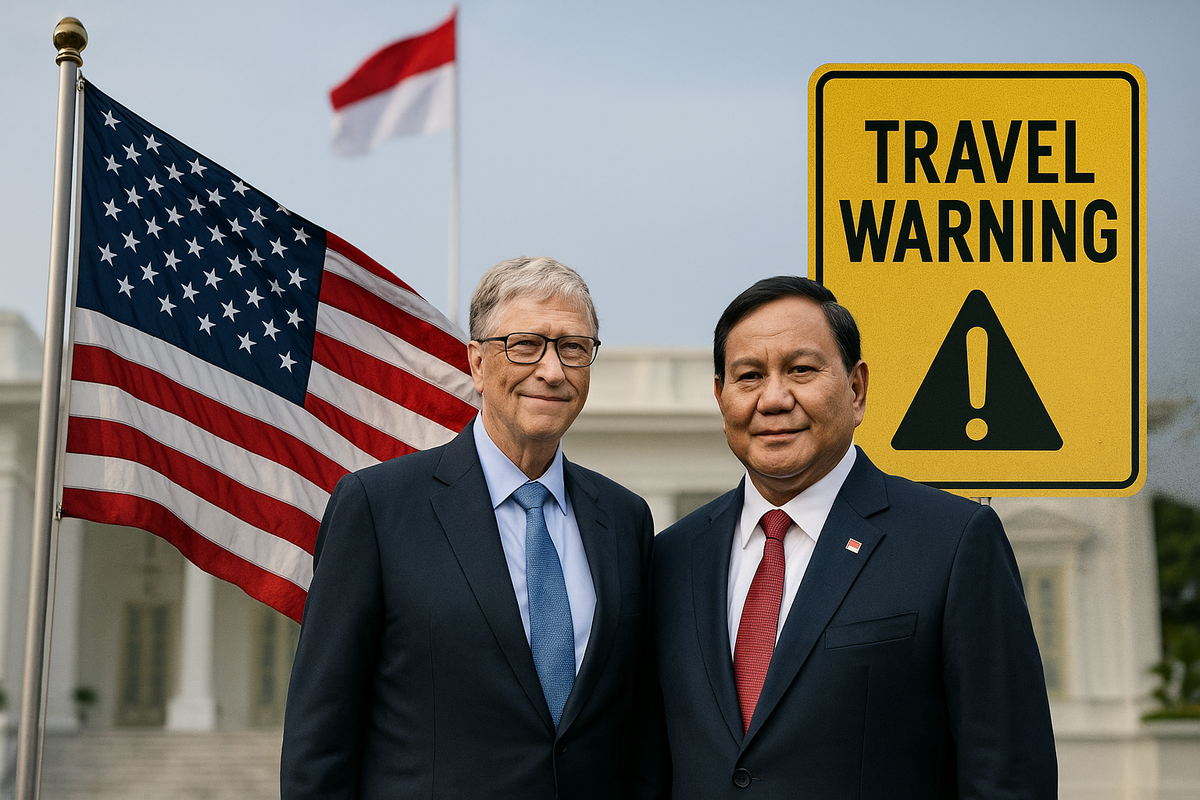U.S. Travel Warning After Bill Gates Visits Indonesia: A Dual Diplomacy in Global Spotlight?
Bill Gates’ visit to Indonesia comes amid a U.S. travel advisory. Could there be a hidden agenda behind this diplomatic maneuver?

Bill Gates’ Strategic Visit
On May 7, 2025, Bill Gates arrived in Jakarta and met directly with President Prabowo Subianto at the Merdeka Palace. The visit carried a significant agenda: collaboration in health, nutrition, and digital infrastructure. The Gates Foundation, which has provided over $300 million to Indonesia since 2009, plans to launch a tuberculosis vaccine trial and micronutrient supplements for pregnant women. This reinforces Indonesia’s role as a strategic partner in global development efforts driven by health and technology.
U.S. Travel Advisory: Threat or Signal?
Just a week before Gates’ arrival, the U.S. State Department issued a Level 4 travel warning for two provinces in Papua, citing civil unrest, abduction risks, and restricted emergency access. The timing raised eyebrows, as it closely aligned with Gates’ high-profile diplomatic mission.
Some analysts speculate that the advisory wasn’t solely about security. It may have been a subtle diplomatic message—protecting a high-value individual while simultaneously pressuring the Indonesian government over human rights issues in Papua.
A Two-Sided U.S. Strategy?
From a geopolitical perspective, this approach falls under “smart power”—projecting influence through both soft engagement and strategic warnings. On one hand, the U.S. portrays itself as a development ally through figures like Gates. On the other, it maintains pressure on Indonesia to remain aligned with Western interests. This dual tactic also helps manage global narratives—presenting Indonesia as a nation still fraught with internal risks despite its proactive reforms.
The travel warning could function as a diplomatic shield. By releasing a general advisory rather than explicitly mentioning Gates’ security, the U.S. safeguards its prominent figure without escalating tensions publicly.
At first glance, the travel advisory and Gates’ visit appear unrelated. But through the lens of international strategy, they may serve complementary purposes. Indonesia receives support and global recognition, while the U.S. retains narrative control and strategic caution. This is where soft diplomacy quietly exerts its power.





Comments ()